

The University of Bologna, founded in 1088, values the unique potential of each individual, focusing on openness and the opportunity to express every talent. It believes in contributing to the common good and the importance of co-creating value with the community and society. With a millenary history, the Alma Mater strives for educational and scientific excellence, promoting broad relationships at the local and international levels. The academic community, composed of teaching staff, administrative staff, and students, is committed daily to addressing future challenges, valuing diversity, and promoting inclusion and equity. Its innovative teaching approach and focus on innovation aim to meet society's needs by exploring new educational methodologies to provide current and future skills.
UNIBO will lead the DARE project, coordinating Spoke 1 on the legal, ethical, and data security framework and Spoke 2 on primary prevention. It will be responsible for technological development and training to strengthen digital prevention skills. It will contribute with the AlmahealthDB platform for the analysis of sensitive data, HPC infrastructures, and laboratories for diagnosing frailty and developing wearable technologies. Additionally, it will bring expertise in data analysis and monitoring of health and lifestyles, utilizing data on motor control of developing subjects.
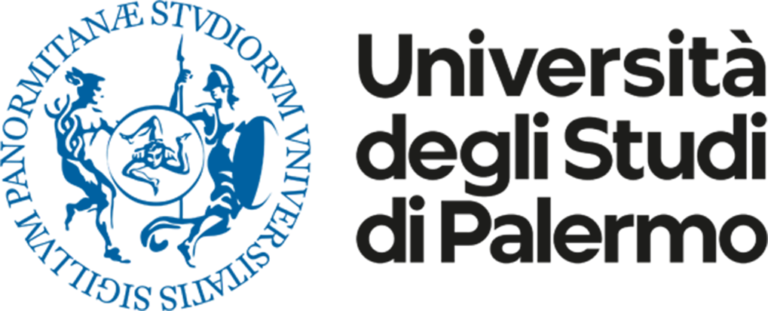
The University of Palermo, founded in 1806, with its over 40,000 students, is one of the 11 mega universities in Italy. In recent years, the University of Palermo has increasingly dedicated its energy to its Third Mission, enhancing and transferring knowledge for the benefit of the territory.

The University of Rome "Tor Vergata" began its teaching activities in 1982. Designed on the model of Anglo-Saxon campuses, it occupies an area of about 600 hectares. This particular extension has allowed the development of each of the six Macroareas in separate structures, built in large dedicated spaces: Economics, Law, Engineering, Humanities and Philosophy, Medicine and Surgery, Mathematical, Physical and Natural Sciences.

The IRCCS Azienda Ospedaliero-Universitaria di Bologna Policlinico di Sant’Orsola is a very old hospital (the first nucleus dates back to 1592) and is home to the Faculty of Medicine and Surgery of the University of Bologna. With 1,076 researchers (including doctors, biologists, technicians, and healthcare professionals, 212 professional research collaborators, 1,897 publications in national and international specialized journals, and over 2,345 active clinical studies), the Policlinico di Sant’Orsola is also a Scientific Institute for Research, Hospitalization, and Healthcare in two research areas in which Bologna is already a reference point at a national and international level: transplantation and critical patient care, and the integrated medical and surgical management of oncological diseases.

The mission of the Foundation, as a Catholic-inspired University Hospital, is to offer patients humanity, excellence, and high specialization in care, while promoting constant innovation in medicine and training healthcare professionals. futuro.La Fondazione è il luogo in cui competenze scientifiche e tecniche, sensibilità umana, etica e valori cattolici diventano un concreto impegno al servizio di tutti per cure eccellenti ed accessibili a tutta la comunità.Policlinico Gemelli e Facoltà di Medicina si posizionano al cuore del sistema sanitario, sviluppando e diffondendo un modello di riferimento nazionale e internazionale per la gestione, l’organizzazione, la tecnologia e l’umanizzazione della medicina.
FPG will be involvedin spoke 2 and 3, equipped with essential molecular biology tools but requiring new investments for ambitious results. They established the Gemelli Science and Technology Park (G-STeP) per coordinare la ricerca in scienze della vita, offrendo servizi certificati a ricercatori e aziende. Tra le strutture di G-STeP to coordinate life sciences research, offering certified services to researchers and companies. G-STeP includes facilities such as Biobanking, Bioinformatics, Data Collection, Epidemiology-Biostatistics, FPG will participate in spokes 2 and 3, equipped with essential molecular biology tools but requiring new investments for ambitious results. They established the Gemelli Science and Technology Park (G-STeP) to coordinate life sciences research, offering certified services to researchers and companies. G-STeP includes facilities such as Biobanking, Bioinformatics, Data Collection, Epidemiology-Biostatistics, Flow Cytometry, Genomics, Metabolomics, Microbial Analysis, Microscopy, Proteomics, and Real-World Data. Support is also provided by the Clinical Governance Unit for managing critical pathways. a flusso, Genomica, Metabolomica, Analisi Microbica, Microscopia, Proteomica e Dati del mondo reale. Il supporto viene anche dall’Unità di Governance Clinica per la gestione dei percorsi critici.
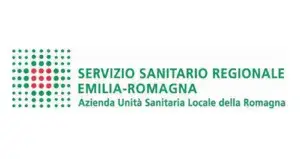
The Local Health Authority (AUSL) of RomagnaEstablished by Regional Law No. 22 of November 21, 2013, the Local Health Authority (AUSL) of Romagna is the instrumental body through which the Region ensures the essential and uniform levels of assistance within the Romagna territory. RomagnaThe AUSL has public legal personality and entrepreneurial autonomy according to national and regional health service regulations Sanitario.L’Azienda Its purpose is to promote, maintain, and improve the health of the resident and present population, ensuring the highest possible quality of life by providing essential levels of assistance as mandated by national and regional legislation.
L’Azienda Sanitaria Locale (AUSL) della Romagna si impegna a coordinare gli interventi del progetto tramite il Dipartimento di Medicina Interna, collaborando come affiliato agli spoke 1 e 2. Per lo spoke 1, contribuirà al Work Package 5 (WP5), mentre per lo spoke 2, al Work Package 4 (WP4).

The ASL of Bari, established in 2006 from the merger of four ASLs in the former Province of Bari, operates with entrepreneurial autonomy. It serves the area through 12 Socio-Health Districts, 5 directly managed hospitals, a classified hospital “Ente Ecclesiastico Ospedale Generale Regionale Miulli” and the IRCCS “Salvatore Maugeri” in Cassano delle Murge, in addition to accredited private facilities. It offers LEA services that include basic healthcare, pharmaceutical, outpatient specialist, residential, semi-residential, and continuous care services, including the management of the COVID-19 emergency through the U.S.C.A.
Our ASL coordinates the project's interventions through the Department of Territorial Assistance and the Department of Prevention, collaborating in Spokes 1 and 3. It will contribute to WP5 in Spoke 1 for impact analysis and policy making, and in Spoke 3 to WP3 and WP5, focusing on digital tools for cancer screening and early diagnosis, and on the integration of digital technologies and digital therapies to improve care for patients with chronic kidney disease and other chronic non-communicable diseases.
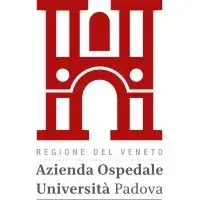
The Padua Hospital-University (AOUP), established in 1994, is a national reference hospital with high specialization, integrated with the University of Padua to provide healthcare services, education, and research. Its mission is to harmonize medical care with education and scientific innovation, contributing to the goals of the Regional Health Service and the university. AOUP aspires to be a nationally and internationally recognized center of excellence by promoting high-quality education, improving healthcare services, and advancing research. mira inoltre It also aims to be a reference point for the integration of healthcare, education, and research, while strengthening its presence in the global healthcare and scientific network. The AOUP seeks to attract patients and professionals from around the world, solidifying its role as a hub for advanced medical services, high-quality training, and cutting-edge research.
The Azienda Ospedale-Università di Padova (AOUP) will be affiliated withlo spoke 3. AOUP will provide the following data:
Hospital Data relating to approximately 40,000 annual admissions.
Laboratory and microbiology data, with around 1 million tests conduc
Data from the emergency department, including around 100,000 annual visits.

The Local Health Authority is the reference point for the health needs of residents in the Roman territory. ASL Roma 1 includes three directly managed hospitals: San Filippo Neri Hospital, Santo Spirito Hospital, and the Monospecialistic Ophthalmic Hospital - a regional reference center. Day hospitalization activities are also available at the S. Anna Women's Health Center and the Sant'Andrea facility on Via Cassia. Additionally, the Nuovo Regina Margherita facility is integrated with Santo Spirito Hospital for specific medical and surgical care pathways.
Roma 1 will play an active role in the project within Spoke 2, the Community-Based Integrated Advanced Surveillance System (ACISS). Additionally, it participates as an implementing entity in Work Packages 1 and 4, which include, among other activities, predictive models for automatic disease surveillance systems (UNIBO) and the use of digital technologies to support vaccination programs (FPG+ASL Roma 1). Roma 1 will provide the project with its Primary Health Care facilities: community health centers, outpatient clinics, and vaccination hubs.
The PTV Foundation, in line with the reformulation of its Statute, acts as a reference body for managing healthcare activities, research (experimental, clinical, and technological), and education. It integrates these areas with patient care to enhance the educational potential of the University. Its mission is to ensure high-quality healthcare, promote excellence in medical and health education, and strengthen biomedical and clinical research. The Foundation emphasizes human-centered care and strives to improve healthcare protocols and organizational innovation, creating a service-oriented hospital focused on the individual.
PTV will collaborate with UNIROMA2 in pilot projects within Spoke 3, specifically supporting the following tasks:

The ISNB is an IRCCS focused on clinical and translational research in neurology, specializing in neurodegenerative diseases, movement disorders, neuromuscular disorders, sleep disorders, and epilepsy, as well as neurosurgery and neuroradiology. Born from the merger of the neurological structures of the Azienda USL of Bologna and the University Neurological Clinic, it is located at Bellaria Hospital and extends across the metropolitan area of Bologna. It manages the HUB for neurological vascular emergencies, rehabilitation of brain injuries, and coordinates adult neurological activities. It is a reference center for epilepsy surgery, pituitary and pediatric neurosurgery, and plays a key role in university teaching and continuous education in the field of neuroscience.
The Institute participates in Spoke 3 – WP4 of the project, leveraging advanced infrastructures for cellular and molecular biology. It has platforms for next-generation sequencing, capillary electrophoresis sequencing, multiplex and ultra-sensitive protein analysis technologies, mass spectrometry, and a 3T MRI scanner with a 64-channel coil.

BI-REX (Big Data Innovation and Research Excellence) is one of the 8 National Competence Centers established by the Ministry of Enterprises and Made in Italy (formerly MISE) as part of the government’s Industry 4.0 plan. Our public-private consortium, founded in 2018 and based in Bologna, brings together 60 partners including universities, research centers, and leading companies, with a specialized focus on Big Data. BI-REX is the only Competence Center led by industry.
BI-REX, a founding partner of the HUB and affiliated with Spokes 1, 2, and 3, will be the Leader of WP7 in Spokes 2 and 3, handling technology transfer, research results valorization, dissemination, and startup acceleration. It will offer technological demonstrations and practical training support on I4.0 technologies in its Pilot Plant, an intelligent factory. BI-REX will also promote public engagement through matchmaking events, investor meetings, and webinars. Through CINECA and INFN, it will provide access to HPC infrastructures for data analysis, supporting research, development, and innovation in Spoke 1.

The organization serves as an affiliate in Spoke 2. Operationally, Leithà will handle the transformation of documents, initially in PDF/JPG format, by digitizing the text using OCR (Optical Character Recognition) technology. Subsequently, they will implement a Natural Language Processing (NLP) algorithm to extract relevant information for other tasks, focusing on healthcare-related processes.

The GIMBE Foundation will participate in Spokes 1 and 2 of the project. In Spoke 1, it will produce evidence-based reports on the effectiveness of preventive interventions and ensure the widespread dissemination of DARE's results among healthcare professionals, patients, and the public through scientific publications, events, websites, social media, and newsletters. In Spoke 2, GIMBE will focus on education and training, developing programs for healthcare professionals and offering training activities for professionals and the public. Based in Bologna, GIMBE has a strong IT infrastructure and an extensive national and international network of healthcare stakeholders.
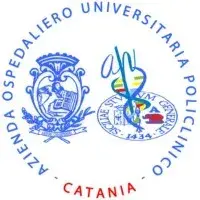
The RTI CT-ME-EN network is dedicated to oncological surveillance and occupational risks, with a focus on clinical governance and research. Key objectives include monitoring cancer, studying its causes, planning and assessing preventive interventions, improving access to care, and optimizing healthcare costs. Contributing to Spoke 2, AOUPCT supports the development of a digital infrastructure for an advanced cancer surveillance system. This system integrates epidemiological, environmental, occupational, clinical, and biomolecular data for detailed studies and the evaluation of preventive measures. spoke 2, l’AOUPCT supporta lo sviluppo di un’infrastruttura digitale per un sistema avanzato di sorveglianza del cancro, che combina dati epidemiologici, ambientali, lavorativi, clinici e biomolecolari per studi dettagliati e la valutazione dell’efficacia delle misure preventive.

ENG, as an affiliated partner in Spokes 1 and 2, will focus on research to support disease prevention through decision support tools for Population Health Management. These tools aim to assist the decision-making processes of healthcare professionals and policymakers by providing automated recommendations and useful information based on guidelines, standards, and knowledge derived from machine learning techniques. ENG will apply these research areas to enhance the knowledge of healthcare professionals and patients in the primary prevention diseases, e.g.: chronic metabolic, cardiac, oncological, and neurodegenerative, utilizing proprietary products such as Ellipse, previous developments, and the Unified Health Model (UHM) to integrate demographic, clinical, and other relevant data.

Exprivia, a founding member of the Hub and affiliated with Spokes 1 and 3, specializes in the creation of digital solutions for a healthcare system capable of combining savings, effectiveness, and efficiency. Therefore, in DARE, it will provide its know-how, proprietary technologies, and products primarily to: (i) develop AI-based models aimed at addressing demand, prescription appropriateness, and the correct use of hospital resources, particularly in the emergency and inpatient settings; (ii) improve the collection and use of multidimensional data on a regional scale, using its own storage systems and clinical decision systems; (iii) support the collaboration of initiatives with regional and national systems.

The INFN is the national public research institution, overseen by the Ministry of Education, Universities, and Research (MIUR), dedicated to the study of the fundamental constituents of matter and the laws that govern them. It conducts theoretical and experimental research in the fields of subnuclear, nuclear, and astroparticle physics. INFN's research activities take place within an international competitive framework and in close collaboration with the Italian university system, based on well-established and decades-long relationships. Fundamental research in these sectors requires the use of cutting-edge technologies and research tools that INFN develops both in its own laboratories and in collaboration with the industrial sector. INFN was established on August 8, 1951, by groups from the Universities of Rome, Padua, Turin, and Milan to continue and develop the scientific tradition started in the 1930s with the theoretical and experimental nuclear physics research of Enrico Fermi and his school.
INFN manages the largest computing infrastructure in Italy, with one national center and nine medium-sized centers, connected by 100 Gbit/s networks managed by GARR. It focuses on advanced Cloud services, based on open-source, for computing, storage, HPC, and big data analysis needs, including sensitive data, ensuring security through ISO-certified centers. INFN's expertise in handling sensitive big data will be employed in Spoke 1 of the project, leading WP3 and contributing to WP2, WP4, and WP6.

The Rizzoli Orthopedic Institute (IOR) is a highly specialized hospital for assistance and research in the field of orthopedics and traumatology. In 1981, the Ministry of Health declared Rizzoli an Institute for Treatment and Research of a Scientific Nature (IRCCS), recognizing the high level of healthcare and research achieved by the institute in the orthopedic and traumatological field.

The ISTITUTO TUMORI is a public law research institute specialized in oncology, confirmed by ministerial decree in 2014. Originating from the Cancer Center of 1933, it became a specialized Oncology Hospital in 1976 and was recognized as an IRCCS in 1985. Located in the former "DOMENICO COTUGNO" Hospital in Bari, the Institute is committed to oncological research and assistance, following national and regional health objectives. It is recognized as a center of excellence for pre-clinical, translational, and clinical research, as well as for care, having obtained international accreditation as a Clinical Cancer Center from the Organization of European Cancer Institutes (OECI) in 2015, adhering to international standards of multidisciplinarity, innovation, and quality care.
In the Spoke 3, we will collaborate with Prof. Luisa Torsi in the development of tests for the early diagnosis of lesions related to infections (WP4) and in the identification of specific signatures as predictive markers for cancer using digital tools (WP3). A multidisciplinary group led by Dr. Raffaella Massafra will use AI models, such as Convolutional Neural Networks, to analyze pathological images and automatically identify tumor characteristics or lymphocytic infiltrates, supporting more personalized patient management. The institute has all the necessary facilities, including molecular biology laboratories, a biobank, GMP laboratories, and bioinformatics laboratories, in addition to administrative offices supporting scientific activities.

Maria Cecilia Hospital (MCHGVM), part of GVM Care & Research, an Italian private group engaged in healthcare, research, biomedical industry, thermal care, and business services, is one of the main centers for high specialty and complex diagnostic and interventional services in Emilia-Romagna and Italy, particularly in the treatment of cardiovascular diseases. MCHGVM is experiencing significant clinical and scientific development thanks to the integration of clinical activity with a significant contribution from basic, translational, and clinical research. The organizational structure dedicated to research is governed by the Scientific Directorate, which relies on various structured support services such as a translational research center, a clinical trials unit, biostatistics and epidemiology, a grant office, the Cardiopers-Lab laboratory, and a scientific library.
MCHGVM contributes to the initiative in Spokes 2 and 3 through actions in 3 work packages. Spoke 2 (WP4): The DIPPER pilot is structured in two directions: one involves the implementation of a large-scale digitized prevention process for non-communicable diseases, providing evidence-based recommendations visible to each recruited individual on a dedicated web portal; the other involves the creation of personalized primary prevention programs supported by telemedicine systems for individuals with cardiovascular risk factors to reduce their risk and promote lifestyle changes. Spoke 3 (WP2): Coronary Radiomics. The aim of the study, in collaboration with the University of Rome Tor Vergata, is to identify digital radiomic markers of the coronary arteries in a population with a previous cerebrovascular stroke event and in a control population. Spoke 3 (WP4): The aim of the pilot study, in collaboration with the Rizzoli Orthopedic Institute and Sant’Orsola Polyclinic, is to identify predisposing factors for ulcerative risk in the feet of patients with type 2 diabetes, using a multimodal and multi-instrumental approach that integrates clinical/metabolic, biological/biochemical, and biomechanical/functional data. MCHGVM will contribute to the definition of the risk score through the search for circulating inflammatory biomarkers.
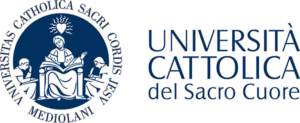
The UNICATT is an academic community that contributes to the development of studies, scientific research, and the preparation of young people for research, teaching, public and private offices, and free professions. The UNICATT fulfills these tasks through adequate higher education and education informed by the principles of Christianity, respecting the autonomy of every form of knowledge, and according to a conception of science that serves the human person and civil coexistence, in accordance with the principles of Catholic doctrine and in line with the universal nature of Catholicism and its high and specific demands for freedom as stated in Article 1 of the Statute.
UNICATT contributes to Spokes 1 and 2. As part of the activities planned for Spoke 1, the Hygiene Section of the Department of Life Sciences and Public Health is primarily engaged in identifying relevant criteria for measuring the utility and implementability of digital preventive interventions, synthesizing the obtained evidence, and identifying and creating a network of stakeholders for the co-creation of personalized digital prevention strategies.
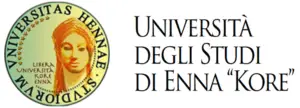
The UKE, Kore University of Enna, is a legally recognized non-state university authorized to issue legally valid academic degrees, including Bachelor's degrees, Master's degrees, first and second-level Master's degrees, and Doctorates. The name Kore was preferred over Persephone, Proserpina, or Libera—all attributed to the same figure—because its widespread use connotes all Mediterranean civilizations, those further north and south, and those more western and eastern, thus better describing, compared to the other names of the same myth, the infinite directions of research and knowledge and the relationships between cultures.
In support of Spoke 1 activities, the Hygiene Section possesses multidisciplinary expertise in medicine, physics, biology, chemistry, public health, sanitary engineering, health management and economics, epidemiology and statistics, as well as in legislative, sociological, and ethical domains. Within the framework of Spoke 2 activities, the Department of Cardiovascular and Pulmonary Sciences brings the necessary experience to develop and implement prevention programs for cardiovascular diseases.

The University of Bari "Aldo Moro," founded by Decree on October 9, 1924, has roots in the ancient University Schools of Pharmacy and Notary established after the Unification of Italy. It has grown significantly over time, adding the Faculties of Medicine and Surgery, Law, Economics and Commerce, Agriculture, and later Arts and Philosophy, Sciences, Engineering, Education, Veterinary Medicine, and Foreign Languages and Literatures. The University of Bari is also distinguished by its international activities and cultural cooperation agreements with universities worldwide, hosting the Consortium of Mediterranean Universities and being a founder of the Technopolis-CSATA Novus Ortus Scientific and Technological Park. In 2008, the university was named after Aldo Moro, solidifying its legacy of educational and research excellence.
The University of Bari is involved in the proposal as an affiliate of the first and third spokes. For the first spoke, UNIBA will assume the role of Co-Principal Investigator and lead WP7. Regarding the third spoke, UNIBA will lead WP4. Concerning research infrastructures that can be made available for the initiative, UNIBA has established and manages, together with INFN, the ReCaS DataCenter, a computational infrastructure for HPC and cloud computing (10K CPUs, 15 PB of storage), designed to support large-scale data mining and machine learning model training. Additionally, UNIBA has recently established the Center for Innovation in Single Molecule Digital Assay, which aims to develop technologies for molecular diagnostics through microsystems and medical devices or the creation of new high-tech platforms for early non-invasive diagnosis and personalized therapies.
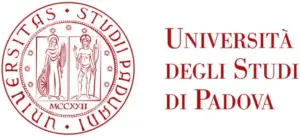
The University of Padua (UNIPD), founded in 1222, is among the oldest universities in the world and boasts a solid reputation for excellence in both research and teaching. Its 32 departments cover an exceptionally wide spectrum of research areas, including humanities, social sciences, engineering, physics, technology, life sciences, medicine, and natural sciences. UNIPD currently offers over 200 study programs (93 undergraduate programs, 100 master's programs, and 10 single-cycle degree programs) with approximately 68,000 total enrolled students. There are also 40 doctoral programs with a total of 1,800 students, an excellence school, and over 60 specialization schools. UNIPD employs over 2,200 faculty members and over 2,400 technical and administrative staff and has long been positioned at the highest levels of international rankings for the quality of teaching, research, and services (in the 2024 global rank, it is ranked 219 by QS, in the 150-200 range by ARWU, and in the 201-250 range by THE).
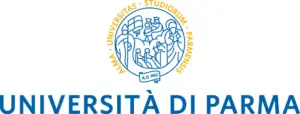
The University of Parma is a privileged place for higher education and the advancement of knowledge, aiming to contribute to the development of society through the cultural and civil promotion of individuals and the creation of a culture based on the universal values of human rights, peace, international solidarity, and environmental protection, as stated in the University's Statute.
Researchers from DIMEC, experts in imaging diagnostics and clinical medicine, will contribute to Spoke 3 by leveraging their experience in personalized medicine. They will provide clinical data and access to advanced clinical tools. Researchers from DIA, with their technical expertise, will support Spoke 1 and offer technical assistance to medical research groups in Spoke 3, promoting innovative approaches in technological research fields. Collaboration with law departments will address the ethical and legal issues arising from AI, focusing on explainable AI (XAI) to mitigate ethical biases in AI applications. Additionally, UNIPR's research, particularly concerning computing needs, relies on a central high-performance computing (HPC) cluster developed with INFN, highlighting the commitment to enhancing research capabilities through high-performance computing, with a focus on efficiency and innovation in managing computing resources for scientific research.

The Regional Agency for Environmental Protection (ARPA) Sicily, established by Regional Law 6/2001, operates under the supervision of the Regional Department of Territory and Environment of Sicily. ARPA's mission is to protect the environment through monitoring, control, and sustainable development. Its activities include technical assessments, environmental management, research, education, and ecosystem monitoring. The agency supports regional authorities, healthcare companies, and collaborates with local and national bodies to safeguard the environment, focusing on research initiatives and professional training in environmental matters.
Arpa Sicilia contribuisce allo spoke As part of the “Population-Based Digital Primary Prevention (PDPP)” project, Spoke 2 will provide environmental data related to the monitoring of air, water, soil, waterways, and water basins, as well as productive and industrial settlements, alongside physical pollutants such as radio frequencies and noise. It will make its laboratory and environmental monitoring equipment available to integrate environmental data with the project's application architectures. A new hardware infrastructure will need to be acquired and installed in its data center to manage environmental data, ensuring compliance with national and EU regulations, such as GDPR, and adherence to industry best practices and project standards defined by the stakeholders of spoke 1.
UPMC (University of Pittsburgh Medical Center) is one of the largest healthcare and insurance systems in the United States. It works closely with the University of Pittsburgh to develop models of healthcare and research excellence. Our facilities in Italy offer immediate access to specialized and advanced care. UPMC's mission is to contribute to the development of the healthcare system of tomorrow by promoting clinical innovation and developing new healthcare management models, thanks also to significant investments in research and training. We cultivate a new idea of patient-centered healthcare based on medical-scientific and technological innovation to inspire and promote a model of responsible, effective, and quality care.
UPMC Italy will participate in the activities of Spoke 2, specifically in Work Packages 1, 3, 4, 6, and 7.